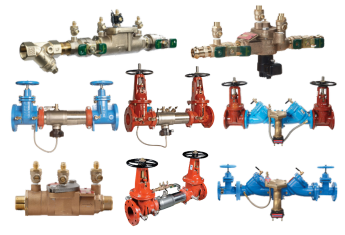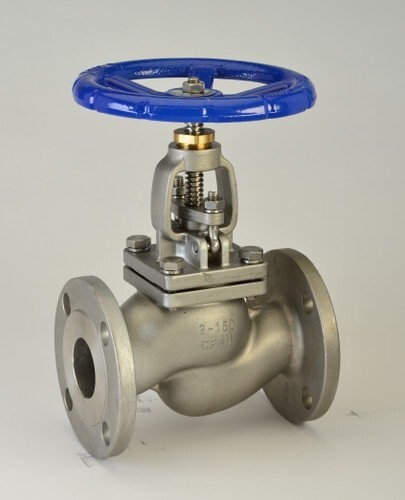
2-Way Ball Valves
2-Way Ball Valves
Shop 2-Way Ball Valves Shop Now
3-Way Ball Valves
3-Way Ball Valves
Shop 3-Way Ball Valves Shop Now
Butterfly Valves
Industrial Butterfly Valves
Shop Industrial Butterfly Valves Shop Now
Check Valves
Industrial Check Valves
Shop Industrial Check Valves Shop Now
Steam Traps
Steam Traps
Shop Steam Traps Shop Now
Solenoid Valves
Electric Solenoid Valves
Shop Electric Solenoid Valves Shop Now
Regulators
Pressure Regulators
Shop Pressure Regulators Shop Now
Control Valves
Control Valves
Shop Control Valves Shop Now
Gate Valves
Gate Valves
Shop Gate Valves Shop Now
Needle Valves
Needle Valves
Shop Needle Valves Shop Now
Backflow Preventors
Backflow Preventers
Shop Backflow Preventers Shop Now
Air Filter-Regulator-Lubricators (FRLs)
Air Filter Regulator Lubricators (FRLs)
Shop Air Filter Regulator Lubricators (FRLs) Shop Now
Angle Seat Valves
Angle Seat Valves
Shop Angle Seat Valves Shop Now
Diaphragm Valves
Diaphragm Valves
Shop Diaphragm Valves Shop Now
Plug Valves
Plug Valves
Shop Plug Valves Shop Now
Globe Valves
Globe Valves
Shop Globe Valves Shop Now
Block and Bleed Valves
Block And Bleed Valves
Shop Block And Bleed Valves Shop Now
Safety Relief Valve
Safety Relief Valve
Shop Safety Relief Valve Shop Now
Actuators & Accessories
Valve Actuators
Shop Valve Actuators Shop NowSolve Your Flow Control Challenges with the Right Valves
Many homes, businesses and industrial facilities face valve and flow related challenges, including incorrect system pressure, low or irregular flow, and unexpected downtime due to valve, equipment or pipe failures. Whether you’re dealing with equipment damage due to backflow, a pressure relief problem, or inadequate flow control, selecting the proper valves can help prevent these issues (and many more), while ensuring reliable, efficient operation across your fluid systems.
Why Choose Professional Valve Solutions?
Ensure that your most critical facilities and process lines use valve technology that is engineered for maximum performance, durability and reliability. Professional valve solutions give you peace of mind with:
Reduced System Downtime: Quality isolation and emergency shutdown valves provide reliability in critical applications, preventing unexpected shutdowns that hurt your bottom line.
Enhanced Safety: Pressure relief valves prevent dangerous overpressure conditions, while check valves prevent equipment damage due to backflow.
Precise Flow Control: Control valves such as globe valves, needle valves and pinch valves offer accurate flow regulation, ensuring stable operation regardless of pressure variations.
Lower Operating Costs: Properly sized valves help reduce energy consumption. Valves with optimized internal geometry improve flow patterns, reduce pressure losses and improve efficiency across your system.
Extended Equipment Life: Robust design and corrosion resistant materials like stainless steel help valves achieve extended service life. Specialized materials are also better at handling handle extreme temperatures and aggressive chemicals.

What Makes Different Types of Valves Special?
Understanding the features and characteristics of different valve types helps you select a product that is the best fit for your application. Here are some examples.
Ball Valves
Quarter turn operation provides quick and simple operation, ideal for emergency closure and use as shut-off valves. Floating ball valves are suited to low pressure isolation, trunnion mounted ball valves are more reliable for high pressure systems, and segmented ball valves (also called V-port ball valves) may be used for moderate flow control.
Butterfly Valves
Their compact design saves space compared to bulkier isolation valves, such as gate valves and ball valves. Butterfly valves are available in wafer, lugged and flanged connections, and are cost effective for isolation in large diameter piping (from 8” to 120”). As the valve disc remains in the flow path even when the valve is fully open, butterfly valves have a larger pressure drop across the valve when compared to full-port isolation valves.
Globe Valves
Globe valves are a type of control valve, which means they are suited to flow throttling and flow regulation. They are essential for applications such as process control, which requires accurate flow adjustment over a broad range of fluid flows.
Check Valves
These valves prevent backflow, by allowing flow in one direction only, and closing when flow begins to reverse. This protects equipment such as pumps, prevents tanks from draining, and can even prevent contamination. Check valves are also known as non-return and reflux valves, and are available in many designs including swing check valves, lift check valves, nozzle check valves and ball check valves.
Gate Valves
Commonly used as shut off and isolation valves, allowing sections of pipeline or equipment to be isolated for repairs and maintenance. Gate valves use linear motion to raise or lower the valve disc, starting and stopping fluid flow. Gate valve designs include rising and non-rising stem, outside screw and yoke (OS&Y), resilient seal and wedge gate. Gate valves provide a full bore flow path which minimizes pressure drop when the valves are fully open.
Needle Valves
Another type of control valve, needle valves are suited to smaller diameter piping systems. Needle valves provide fine, accurate flow control, and are suited to applications like fluid metering or dosing.
Relief Valves
Relief valves come in different forms, such as pressure relief, temperature relief and vacuum relief. Broadly classed as safety relief valves, these valves operate automatically to relieve excess pressure, preventing system damage or failure.
Valve Actuator Types
Modern plant automation and control systems require robust actuator solutions to reliably operate valves. The most common valve actuators include:
Electric Actuators: These provide position control with motor-driven linear or rotary drives. Most electric actuators require a power source, and may integrate instrumentation feedback for precision control.
Pneumatic Actuators: Compressed air operates pneumatic actuators through pistons or diaphragms. Double acting pneumatic actuators use air pressure to operate in both directions, while single acting pneumatic actuators use air in one direction only, together with a with spring return feature.
Hydraulic Actuators: Applications commonly use hydraulic actuation systems where high forces, high torque, heavy loads or constant power. Hydraulic cylinders can provide powerful linear motion for large gate valves in high-pressure applications. They may also be used for counterweight or damping systems in check valves.
Manual Valves: Hand wheels and levers allow direct manual operation, for applications where automation isn’t required. These work by applying a direct mechanical force to the valve stem. Gearing is used to allow easier operation of large valves, or for applications where high torque is needed.

Valve Actuator Applications
Valve actuators and accessories are used for a range of operations in manufacturing and processing, the utility sector and power generation industries.
Process Control: Electric actuators with position and control system feedback provide precise valve position and control in chemical processing and refineries. Limit switches detect valve travel and position for fully automated systems.
Emergency Shutdown: Rapid, reliable shutoff is needed when safety systems detect dangerous conditions. Emergency shutdown valves (known as ESD valves for short) typically operate using fail-safe mechanisms, typically failing to a closed state.
Remote Operation: Actuators allow valve control from remote locations, essential for systems where manual operation isn’t practical or safe. Manual overrides may be activated when needed.
Flow Modulation: Linear actuators provide smooth control valve operation for processes requiring constant flow rate adjustment. Actuator motion characteristics can be defined to match any specific process requirements.
Get Your Valve and Actuator Solutions Today
Whether you're looking for valve selection advice, or need to retrofit an existing valve with an actuator, our valve experts provide complete solutions tailored to your specific application requirements. Contact ValveMan today for valve spec assistance, sizing guidance, material selection advice, and application engineering support. After all, we've been doing this for over 60 years!

 888-825-8800
888-825-8800







